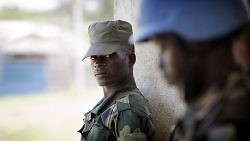
Contemporary UN peace operations are expected to implement ambitious protection of civilians (POC) mandates while supporting host states through conflict prevention, peacemaking, and peacebuilding strategies. Reconciling these people-oriented POC mandates and the state-centric logic of UN-mandated interventions ranks among the greatest challenges facing peace operations today.This report explores how peace operations implement POC mandates when […]
Read more







